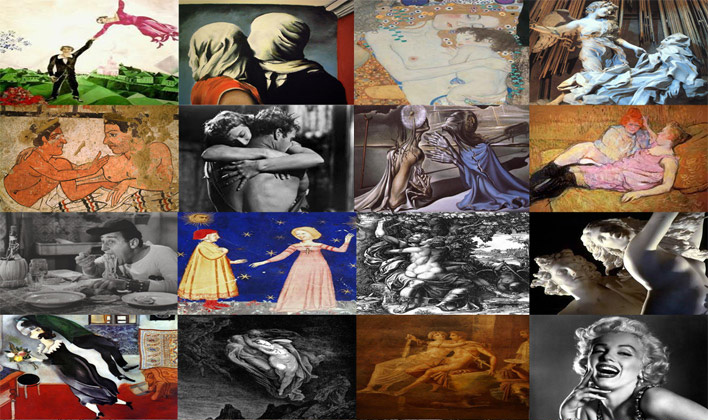The Heretical Dream of Casanova
Abstract
Casanova, as he himself admits in his undisciplined memoirs, fully committed his life to a disorganized and non-systematic cultivation of pleasure. In such lack of stability, which affects the identity as well as the actions of the narrator, the energy of desire is revealed in its most vital and powerful forms: a desire for recognition, glory and literary immortality, which is a desire for the Other; a desire for transcendence, but also for new secular horizons, which is a desire for the Elsewhere; a desire for the lover’s words, which is the amorous desire that recomposes the bodies fragmented and made into pieces by sexual desire. Nevertheless a deliberate libertine project – the wide-ranging exploration of natural appetites – seems to traverse the whole Histoire de ma vie, and underlie this narrative codification of sexual desire. As Leonardo Sciascia pointed out, Casanova’s quest for absolute liberty culminates in the celebration of the most extreme action of vitalism – incest. While the incestuous intrigue of the memoirs are famous, less known is the representation of incest Casanova gives in the Jcosameron. In this utopian novel, through the story of a young brother and his sister, initiated to the elevated dimension of consanguineous love by the inhabitants of the centre of the earth, the writer thus finds a possibility to speak publicly about something prohibited, unutterable.
Downloads
References
Baccolo, Luigi, “Casanova, honnête homme”, Casanova erotico illustrato da Chauvet, Milano, SugarCo, 1975: 7-19.
Bartolini, Elio, Vita di Giacomo Casanova, Milano, Mondadori, 1998.
Bloch, Ernst, Das Prinzip Hoffnung, Frankfurt am Main, Suhrkamp, 1959,trad. it. Il principio speranza, Milano, Garzanti, 2005.
Bloch, Ernst, Tagträume vom aufrechten Gang. Sechs Interviews mit Ernst Bloch, Frankfurt am Main, Suhrkamp, 1977, trad. it. Marxismo e utopia, Roma, Editori Riuniti, 1984.
Casanova, Giacomo, Histoire de ma vie. Texte intégral du manuscrit original, Paris, Robert Laffont, 2009, 3 tt.,trad. it. Storia della mia vita, Milano, Arnoldo Mondadori, 1983-1989, 3 tt.
Casanova, Giacomo, Jcosameron ou Histoire d’Edouard et d’Elisabeth qui passèrent quatre vingt un ans chez les Mégamicres habitans aborigènes du Protocosme dans l’intérieur de notre globe, traduite par l’anglois par Jacques Casanova da Seingalt vénitien, Prague, Imprimerie de l’Ecole normale, 1788 [1787], 5 tt., trad. it. Jcosameron, Milano, La Vita Felice, 2001.
De Troja, Elisabetta, Il romanzo ritrovato. Luca Assarino, Giacomo Casanova, Padova, Liviana, 1985.
Fedi, Francesca, “«Plaisir, plaisir, plaisir»: l’appétit secondo ragione del libertino Casanova”, Verba tremula. Letteratura, erotismo, pornografia, Eds. Nicola Catelli – Giulio Iacoli – Paolo Rinoldi, Bologna, Bononia University Press, 2010: 81-101.
Fellini, Federico, Fare un film, Torino, Einaudi (I ed. 1980), 2006.
Foucault, Michel, Histoire de la sexualité I. La volonté de savoir, Paris, Gallimard, 1976, trad. it. La volontà di sapere. Storia della sessualità I, Milano, Feltrinelli, 2001.
Gauter, Claude – Sager, Silvia (eds.), Carissimo Simenon Mon cher Fellini. Carteggio di Federico Fellini e Georges Simenon, Milano, Adelphi, 1998.
Graziosi, Elisabetta, “Due temi per Casanova libertino: incesto e suicidio”, L’Histoire de ma vie di Giacomo Casanova. Atti del Convegno (Gargnano-Università di Milano, 2007), Milano, Cisalpino Istituto Editoriale Universitario, 2008:245-265.
Jameson, Fredric, Archaeologies of the Future. The Desire Called Utopia and Other Science Fictions, New York, Verso, 2005, trad. it. Il desiderio chiamato Utopia, Milano, Giangiacomo Feltrinelli, 2007.
Mari, Michele, “Casanova: un perfetto personaggio felliniano”, L’Histoire de ma vie di Giacomo Casanova. Atti del Convegno (Gargnano-Università di Milano, 2007), Milano, Cisalpino Istituto Editoriale Universitario, 2008:391-410.
Panella, Giuseppe, “Il mondo altrove di Giacomo Casanova. Congetture sull’Jcosameron e sulla seduzione della scrittura”, Jcosameron, Milano, La Vita Felice, 2001: 9-34.
Pizzamiglio, Gilberto, “Casanova e le lettere: giornalismo, romanzo, erudizione”, Il mondo di Giacomo Casanova. Un veneziano in Europa 1725-1798, Venezia, Marsilio, 1998: 203-211.
Recalcati, Massimo, Ritratti del desiderio, Milano, Raffaello Cortina, 2012.
Ruozzi, Gino, “«Il ne faut pas nourrir les serpents». Fulminanti illuminazioni di un moralista libertino”, L’Histoire de ma vie di Giacomo Casanova. Atti del Convegno (Gargnano-Università di Milano, 2007), Milano, Cisalpino Istituto Editoriale Universitario, 2008:323-343.
Sciascia, Leonardo, “L’utopia di Casanova”, Belfagor 34 (1979): 506-511 (ripubblicato in Cruciverba, Milano, Adelphi, 1998: 65-74).
Copyright Notice
You are free to copy, distribute and transmit the work, and to adapt the work. You must attribute the work in the manner specified by the author or licensor (but not in any way that suggests that they endorse you or your use of the work).









